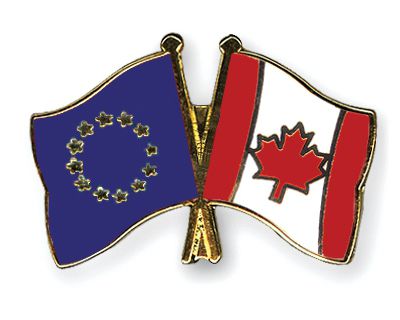
CETA deal to boost spirits sales to Canada
Industry leaders have welcomed the ratification of the controversial CETA trade deal, which will eliminate almost all import tariffs on wines, spirits travelling from the EU to Canada.
Industry leaders have welcomed the ratification of the controversial CETA trade deal, which will eliminate almost all import tariffs on wines, spirits travelling from the EU to Canada.
The Canada Comprehensive Economic and Trade Agreement (CETA) was given the go ahead by MEPS yesterday after five years of negotiations between 2009 and 2014 and a further two years of legalities.
Despite the referendum result, CETA is still set to apply to the UK even after we break away from the EU, and could be finalised as early as April 2017.
Detractors say that the deal gives too much power to multinational companies and will help to broker the possibly even more controversial Transatlantic Trade and Investment Partnership (TTIP), a bilateral trade agreement to help facilitate the needs of big business between the EU and the US.
However, the Scotch Whisky Association (SWA) and the Wines and Spirits Trade Association (WSTA) have welcomed the transatlantic deal, which will eliminate 99% of import tariffs and - as part of the stipulations - force Canada to recognise the geographical indications of EU-made alcoholic drinks.
This is particularly relevant for Scotch whisky.
Although Scotch does not currently pay import tariffs, it is currently subject to a requirement in Canada to blend local spirit with bulk imports of spirit drinks with a geographical indication (GI).
A minimum of 1% Canadian content must currently be added to imports, if the product is bottled by anyone other than the Canadian liquor boards, meaning that Scotch cannot benefit from GI status in Canada.
The SWA said the deal would also help to reduce the number of internal trading restrictions, including the removal of the "market-distorting effects" of the Canadian liquor boards, some of which are currently moving towards applying variable 'mark-up' structures to imported products such as Scotch.
Today, Canadian prime minister Justin Trudeau defended the deal, calling it a "blue-print" for future trade agreements.
Canada has particular significance for some of the UK's top exports.
Canada is Scotch whisky's thirteenth largest market by value, (SWA figures), and gin accounts for one in every three bottles of UK spirit exports to Canada (WSTA).
The WSTA's chief executive, Miles Beale, said he was delighted that MEPs had voted in favour of the deal.
"The lifting of all import tariffs on wines and spirits will allow UK products to compete fairly with an important trading partner in an increasingly globalised market," he said.
As well as leading gin and vodka to benefit from the same zero-tariff rates as whisky, Beale also pointed to the opportunities for wine: "Additionally, English wine can look to the Canadian market with an increased incentive as a destination in their bid to grow exports of their world-renowned sparkling and still wines."
Keywords:
- wine
- News
- Trade Bodies
- Spirits by type
- Sectors
- Whiskey
- Vodka
- Gin
- Wine & Spirit Trade Association
- Spirits
- Jo Gilbert
- HWS - Jo Gilbert




